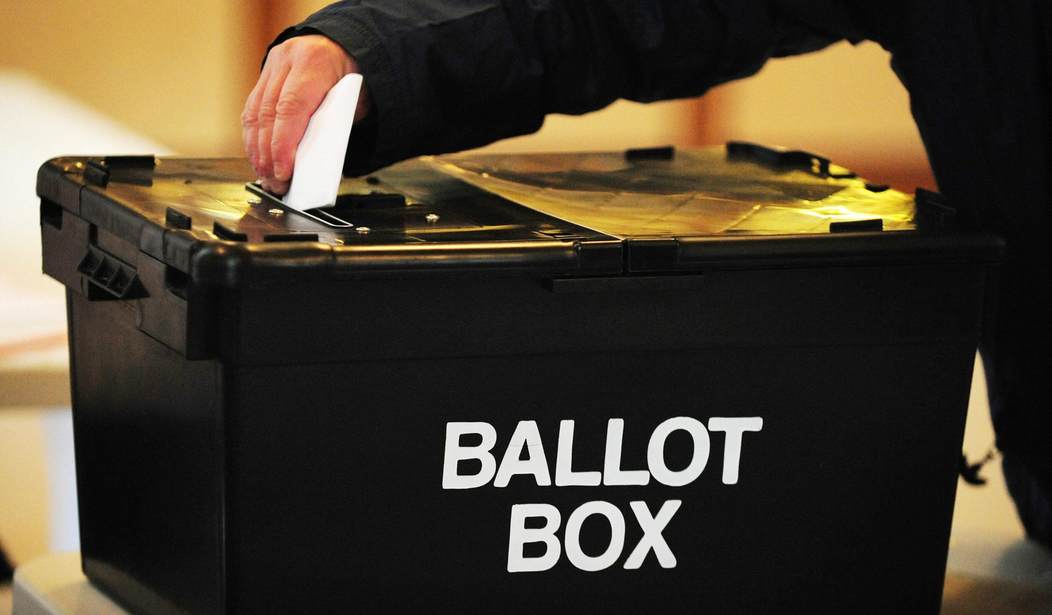There’s a runoff election in Texas’s 7th Congressional District on Tuesday that may give a strong indication of just how far left Democratic candidates will run in November.
The race pits the national Democrats’ favorite attorney Lizzie Pannill Fletcher against a Bernie Sanders acolyte, activist Laura Moser.
What makes the race interesting is that the Democratic Congressional Campaign Committee (DCCC) tried to sabotage Moser’s candidacy by dumping a thick file of opposition research on the press just prior to the March 6 primary.
The unusual move of the national campaign committee to try and undercut one of their own candidates appeared to backfire. Not only did the move enrage national liberals, but local activists were energized so that Moser was able to finish second and force a runoff with Fletcher.
The differences between the two candidates are more a matter of style than substance. This was made evident during a televised debate where the moderator struggled to define any differences between the two candidates.
A mildly exasperated moderator struggled to glean policy differences from the candidates and wondered why it mattered for him to vote for one woman over the other.
Their answers to his query sum up the current Democratic Party, and to people who can’t vote in this race — deeply invested Democratic activists and operatives who live outside of the district — each woman is an avatar for opposing sides of a deeply divided party.
Moser promises to excite the liberal base and bring new voters into the fold. Fletcher aims to appeal to Republicans and moderates who are disgusted with Trump and current GOP leadership.
“I believe that I’m the candidate you should vote for because we cannot run the same types of campaigns and expect different results,” said Moser. “I believe with my history of grassroots activism and involvement and bringing new people into the process.”
In interviews, forums and television ads, Fletcher leans on her mostly lifelong residence in Houston.
“I disagree with Laura when she says she is the only candidate who can talk to voters from across our community about issues because that’s what I’ve been doing for nearly all of my life,” Fletcher said of her volunteer work with the local Planned Parenthood chapter and other Texas progressive groups.
The comment was a subtle jab at Moser, who spent much of her adult life in Washington and moved back to her childhood stomping grounds last year.
“It’s not veiled. It’s not veiled,” Moser said. “Her whole thing is who has lived here the longest, and no one in Houston cares,” Moser added, noting the sizable immigrant population in the city and district.
“The kind of ‘Gone with the Wind’ Tara thing doesn’t feel relevant, but it’s not subtle.”
Moser is right. The activists — both local and national — don’t care where she lived or if she can talk to Republicans and independents or even whether she can win in November. And that’s where supreme danger for the Democratic Party lurks — the passion of activists.
Fletcher and many other liberals running in November have learned the language of moderation while believing in a far-left ideology. They mask their radicalism by talking about “family” and “community.” If they talk issues, they make sure to speak vaguely and frame their positions as a question of “fairness.”
Moser, on the other hand, brashly proclaims her support for redistributive policies, national health care, and undying hatred of Donald Trump. So the question for national Democrats is: can a candidate like Moser actually attract enough support from local activists to beat an entrenched GOP incumbent, John Culberson, in November?
Culberson is an eight-term congressman who won with 76 percent of the vote in 2016. Houston is not Austin. The 7th District is not a friendly place for a liberal Democrat. And yet, Democrats may commit hara-kiri and nominate a completely unwinnable candidate like Moser.
This choice is confronting Democrats nationwide as activists have stepped forward at every level to challenge establishment Democrats. They will probably not break through in large numbers in 2018. But their value to Republicans is that they are yanking the Democrats further and further to the left, making Democratic victories in swing districts problematic.
With Trump’s approval numbers rising — despite the most massively negative coverage of a president in media history — the GOP’s chances of hanging on to the House and Senate are improving. It’s no sure thing, of course, but as long as the Democrats insist on catering to their unhinged base, they will make the choice easy for voters in November.










Join the conversation as a VIP Member